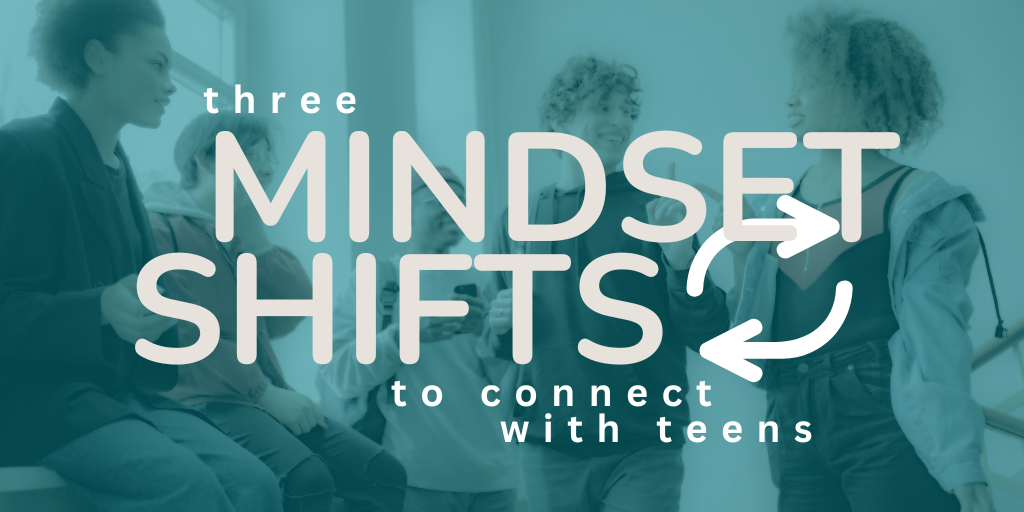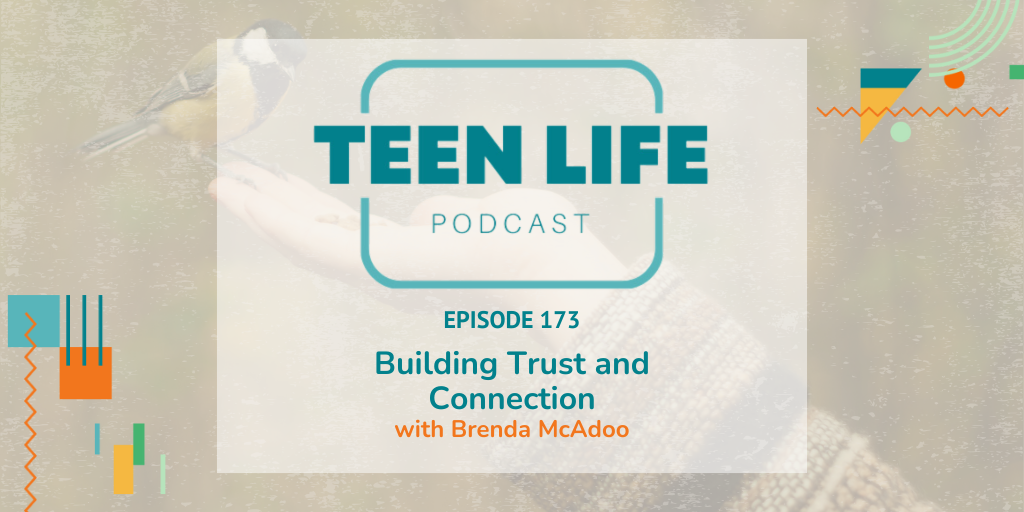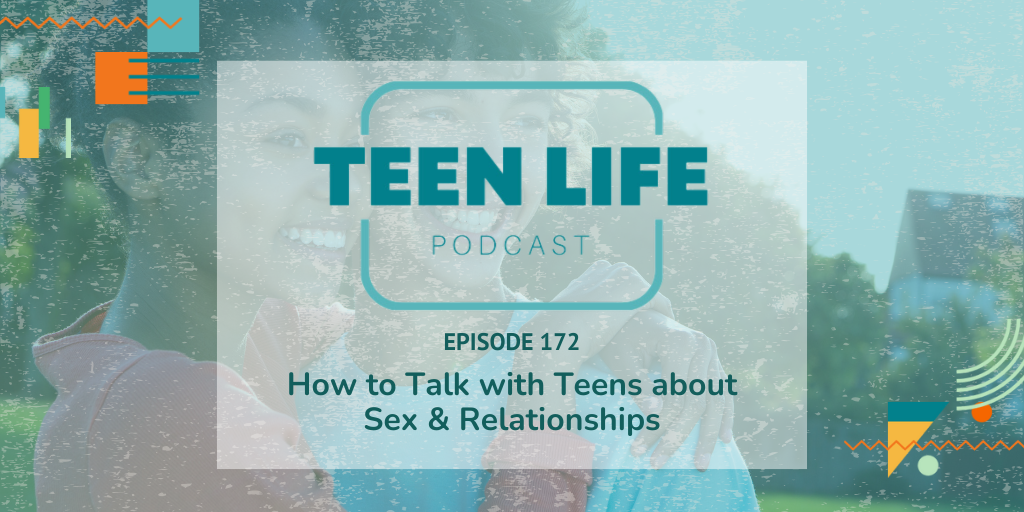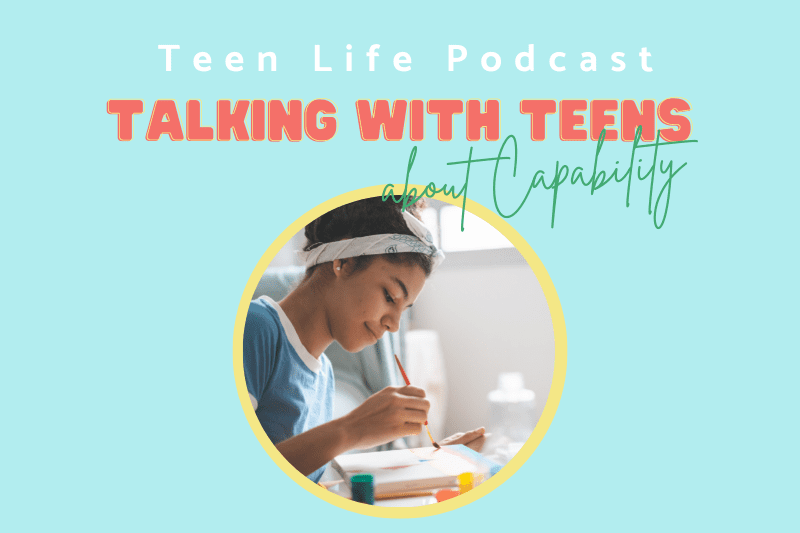
3 Mindset Shifts to Connect Better with Teens
Shift your mindset to be more effective and experience peace when mentoring teens.
Connecting with teens can sometimes feel like navigating a maze — full of twists, turns, and moments of uncertainty.
Whether you’re a parent, teacher, or mentor, you might find yourself wondering how to bridge the gap between your world and theirs.
The good news?
You don’t need to overhaul your personality or learn the latest TikTok trends.
Often, it’s about shifting your mindset.
Here are three powerful mindset shifts that can help you connect more deeply with the teens in your life.
Go from “Fixer” to “Listener”
It’s natural to want to solve problems for teens, especially when you see them struggling. However, jumping into “fix-it” mode can sometimes backfire, leaving them feeling unheard or dismissed.
Teens often crave understanding more than solutions.
That feeling of being heard and understood fosters a sense of belonging and encourages grit. No teen deserves to feel alone in their struggles, big or small.
So try this instead:
Shift your focus to being a curious, empathetic listener.
When a teen opens up, resist the urge to offer advice right away. Instead, say things like, “That sounds really tough. How are you feeling about it?” or “Tell me more about what’s going on.”
By showing you value their perspective, you build trust and open the door for deeper conversations.
Switch from “Authority Figure” to “Guide”
As adults, we often default to roles of authority: setting rules, giving instructions, and ensuring compliance.
While boundaries and guidance are essential, teens also need to feel autonomy and respect to thrive.
Try this instead:
Think of yourself as a guide rather than a director.
Instead of saying, “Here’s what you need to do,” try, “What do you think your next step should be?” or “How can I support you as you figure this out?”
In parenting, this is often called “lighthouse parenting”. We want to be beacons that light the way, but don’t necessarily captain the ship.
This approach empowers teens to take ownership of their choices while knowing you’re there for support.
Instead of thinking “What’s Wrong?”; think “What’s Strong?”
It’s easy to focus on what teens are struggling with: slipping grades, messy rooms, or mood swings.
While addressing challenges is important, it’s equally vital to recognize and celebrate their strengths. Some studies even say that it takes five positive comments to outweigh a negative one!
Try this instead:
Shift your focus to what’s going well.
When you notice a teen’s efforts or talents, call them out. For example, “I saw how much effort you put into that project. That’s impressive,” or “You’re so creative with your ideas!”
Highlighting their strengths boosts confidence and helps them see themselves in a positive light.
You can also make it a regular practice to point out what you admire about them — their sense of humor, their perseverance, their compassion. Ask them what they feel proud of lately, and genuinely listen to their answers. Help them name their strengths and explore how those traits show up in different areas of life. This not only builds self-awareness, but it also sends a powerful message: “You are more than your mistakes.”
Recognizing what’s strong doesn’t mean ignoring what’s wrong — it means helping teens see that they have the tools and talents to overcome challenges.
When they view themselves through a lens of strength, they’re more likely to rise to meet difficult moments with courage and confidence.
Three shifts that make all the difference.
Building meaningful connections with teens takes patience and intention.
By embracing these mindset shifts, you’re not only fostering stronger relationships but also modeling the kind of empathy, respect, and encouragement that helps teens grow into their best selves.
So the next time you’re interacting with a teen, remember: listen before you fix, guide instead of direct, and celebrate what’s strong. Your efforts can make all the difference in their journey.
How do you connect with the teens in your life? Share your thoughts and tips in the comments — we’d love to hear from you!

Kelly Fann
Digital Media Manager
Kelly Fann | Digital Media Manager
Kelly has a desire to empower young people to grow into the best version of themselves. Using her background in branding and word-smithing, she is a master at highlighting resources that help teens learn skills that will enable them to grow and to adapt, to enjoy life and to be better citizens. Kelly has a MA in Linguistics from North Texas University.












